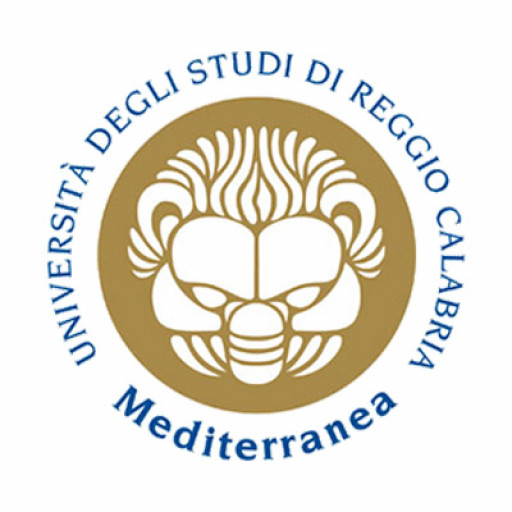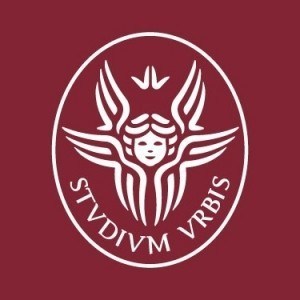Photos of university / #uofmichigan
The University of Michigan's Robotics program offers an innovative interdisciplinary educational experience designed to prepare students for the rapidly evolving field of robotics and automation. Through a comprehensive curriculum that integrates principles from mechanical engineering, electrical engineering, computer science, and systems engineering, students develop a robust foundation in designing, building, and programming intelligent machines. The program emphasizes hands-on learning, allowing students to work with state-of-the-art robotics hardware and software, fostering skills in robotics mechanics, sensor integration, control systems, machine learning, and artificial intelligence. Students have access to cutting-edge laboratories equipped with advanced robotic platforms, simulation environments, and collaborative research opportunities with leading faculty and industry partners. The curriculum is structured to promote critical thinking, problem-solving, and innovative design, encouraging students to develop autonomous systems capable of performing complex tasks in diverse settings, including manufacturing, healthcare, transportation, and exploration. To enhance their learning experience, students can participate in robotics competitions, research projects, internships, and interdisciplinary collaborations that simulate real-world challenges. The program also offers specializations and electives that allow students to tailor their education towards areas such as autonomous vehicles, industrial automation, healthcare robotics, or human-robot interaction. Graduates of the program leave well-equipped to pursue careers in robotics engineering, research, academia, or entrepreneurship. They are prepared to contribute to technological advancements that will shape the future of automation and intelligent systems, making significant impacts across various industries. The University of Michigan's Robotics program prides itself on fostering innovation, practical skills, and a collaborative environment that nurtures the next generation of robotics leaders and pioneers.
The Robotics Masters (MS) degree program requires completion of 30 credits of letter-graded coursework including directed study for 3 to 6 credits.
The robotics program classifies most of its courses as belonging to one of three core subdisciplines:
- Sensing – Includes computer vision, mapping, signal processing
- Reasoning – Includes planning, multi-agent coordination, machine learning, artificial intelligence
- Acting – Includes control, kinematics, dynamics, mechanical, bio-mechanical systems design, manipulation, real-time systems
Robotics: Sensing Core Area Course List
- AERO 566: Data Analysis & System ID
- EECS 442: Computer Vision
- EECS 504: Foundations of Computer Vision (only 1 of 442 & 504 counts for credit)
- EECS 542: Advanced Topics in Computer Vision
- EECS 551: Mathematical Methods for Signal Processing
- EECS 556: Image Processing
- EECS 559: Advanced Signal Processing
- EECS 568/NAME 568: Mobile Robotics: Methods and Algorithms
Robotics: Reasoning Core Area Course List
- AERO 552: Aerospace Information Systems
- AERO 575: Flight Trajectory Optimization
- AERO 584: Navigation & Guidance of Aerospace Vehicles
- EECS 492: Introduction to Artificial Intelligence
- EECS 543: Knowledge-Based Systems
- EECS 545: Machine Learning
- EECS 550: Information Theory
- EECS 558: Stochastic Control
- EECS 592: Advanced Artificial Intelligence
- EECS 595: Natural Language Processing
- EECS 598: Unsupervised Feature Learning
- EECS 692: Advanced Artificial Intelligence
- IOE 473: Decision Support Systems
- IOE 512: Dynamic Programming
- IOE 536: Cognitive Ergonomics
- IOE 560: Bayesian Decision Analysis
- IOE 562: Reliability
Robotics: Acting Core Area Course List
- AERO 540 / ME 540: Intermediate Dynamics
- AERO 551 / EECS 562 : Nonlinear Systems & Control
- AERO 573: Dynamics & Control of Spacecraft
- AERO 580 / EECS 565: Linear Feedback Control Systems
- EECS 461: Embedded Systems Control
- EECS 464: Hands-On Robotics
- EECS 561 / ME 561: Design of Digital Control Systems
- EECS 566: Discrete Event Systems
- EECS 567 / ME 567: Robot Kinematics and Dynamics
- ME 542: Vehicle Dynamics
- ME 543: Anal/Comp Dynamics
- ME 552: Mechatronics
- ME 548: Applied Nonlinear Dynamics
- ME 568: Vehicle Control Systems
Robotics: Possible Elective Courses
Robotics:
- EECS 467: Autonomous Robotics
- EECS 567 / ME 567: Robot Kinematics and Dynamics
- EECS 568: Mobile Robotics
- ME 552: Mechatronic Systems Design
Math:
- EECS 450: Advanced Math for Engineers I
- EECS 501: Probability & Random Processes
- EECS 560 / ME 564 / AERO 550: Linear Systems
- Graduate Application
- Application Fee
- GRE Scores
- Letters of Recommendation
- Transcripts
- Academic Statement of Purpose
- Personal Statement
- Resume/Curriculum Vitae
- English Proficiency Test Scores
The University of Michigan - Ann Arbor offers various financial aid options for students enrolled in robotics programs, aimed at supporting both domestic and international students in their pursuit of higher education. Undergraduate students pursuing a Bachelor's degree in Robotics, which may be offered through interdisciplinary programs within the College of Engineering or related departments, can apply for federal and state financial aid programs, including the Free Application for Federal Student Aid (FAFSA). Graduate students engaged in master's or doctoral studies in robotics or related research fields are eligible for assistantships, fellowships, and research grants provided by the university or external agencies. The university's financial aid office provides comprehensive guidance on scholarship opportunities, including merit-based awards, need-based grants, and departmental fellowships specific to engineering and technical disciplines. Additionally, students can explore external funding options such as industry-sponsored scholarships, private grants, and government funding programs supporting technological research and innovation. The university also offers loan programs, which can be utilized to finance education costs, including tuition, living expenses, and educational materials. It is advisable for students to check the specific program's departmental website for detailed information on scholarships, deadlines, and application requirements. Many students benefit from the university's robust cooperatives and internship programs, which can sometimes include stipends or hourly wages, reducing overall financial burdens. The university maintains transparent commitments to affordability, with policies aimed at minimizing debt and increasing access to students from diverse economic backgrounds. Prospective students are encouraged to contact the university’s financial aid office or visit the official website for personalized assistance and up-to-date information regarding financial support for robotics study programmes.
The University of Michigan - Ann Arbor offers a comprehensive program in Robotics within its College of Engineering. This program is designed to provide students with a solid foundation in the principles of robotics, including mechanical design, control systems, artificial intelligence, and computer programming. The curriculum combines theoretical coursework with practical laboratory experiences, enabling students to develop the skills required to design, build, and analyze robotic systems across various applications ranging from manufacturing to healthcare.
Students participating in the Robotics program have access to state-of-the-art facilities such as advanced laboratories equipped with modern robotic hardware and software tools. The program emphasizes interdisciplinary learning, integrating aspects of electrical engineering, computer science, and mechanical engineering to prepare graduates for the multifaceted challenges of robotics technology. Opportunities for undergraduate research, internships with industry partners, and participation in robotics competitions are integral parts of the educational experience, fostering innovation and real-world problem-solving skills.
Graduates of the Robotics program are well-prepared for careers in industries such as automation, aerospace, automotive, and service robotics, or for further studies in graduate or professional schools. The program’s faculty includes leading researchers and practitioners dedicated to advancing the field of robotics, ensuring that students learn the latest technologies and methodologies. Overall, the Robotics program at the University of Michigan - Ann Arbor aims to cultivate capable, inventive engineers who can contribute to the growing robotics industry worldwide.








